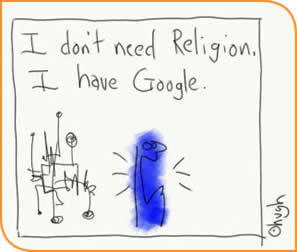
“
Windmill, Windmill for the land,Turn forever hand in hand,...Love forever, love is free,Let’s turn forever, you and me.”
(“Feel Good, Inc.” -
Gorillaz (composer: Gorillaz/Jolicoeur, D.) [band’s
Wikipedia entry,
web site]
The animated music video of “Feel Good, Inc.” [video in
real &
winmedia from
Toshiba-EMI Japan] by Gorillaz (a “virtual band” composed of four fictional animated characters which are featured in the bands’ animated music videos) has enjoyed popularity and seems apropos as a segue to noting a very important anniversary in popular media –
2006 is the 100th anniversary of the animated film. In April, 1906, Englishman-in-America
James Stuart Blackton created what is regarded as the first American animated film – “...Blackton directed "Humorous Phases of Funny Faces" [video in
mpg from
America’s Library] which uses stop-motion as well as stick puppetry to produce a series of effects. After Blackton's hand draws two faces on a chalkboard, they appear to come to life and engage in antics. Most of the film uses life action effects instead of animation, but nevertheless this film had a huge effect in stimulating the creation of animated films in America” [quoted text from
Wikipedia, additional information from
here].
Animated films have come a long way from these humble beginnings, and what was an exotic novelty a century ago is now the stuff of the universal childhood experience, and a high circulation genre at most public libraries. In recent years
Japanese anime has become extremely popular and influential beyond the shores of Japan. I thoroughly enjoyed watching several films by
Hayao Miyazaki that were featured on sequential Thursday nights on
AMC not long ago, and I was not the least surprised to learn that my colleague,
Roger Thompson, is at his local video store
the day the latest
release (3 volumes and running) in the
Ghost in the Shell series hits retail shelves.
Libraries, archives, and museums no doubt have a lot of work going on this space, but I’ll admit my knowledge is a bit limited as to what’s going on. A search of the still-growing directory (search the “Archive Explore” directory) for animation collections at the Moving Image Collections (MIC)
site yielded 81 agencies. Though unfortunately not yet listed at MIC (as I said MIC’s directory is a work in progress – add your collection if yours is not yet listed), worth noting is the
ASIFA-Hollywood Archives which “acts as a repository for papers, production materials, publications and artwork of animation artists, organizations and studios, and makes them available to scholars, journalists and filmmakers” [
source]. Their
blog is promoting the 100th anniversary of animated film and offering news about ASIFA-Hollywood’s work on a project [
Wikipedia entry] that “involves the creation of a VIRTUAL ARCHIVE which will house images, movie clips and sound files pertaining to the art of animation” [some interesting technical details
here]. Courtesy of a
post on the Rogue Scholar, catalogers in particular may wish to consult a great article, “Graphic Novels! Japanese Anime! Help!!!,” by Jeanne Poole, in the
December 2005 issue of
TechKNOW.
Finally, as a historical note, for those of us who remember when MTV was young, the first major high-end animation music video was by the Norwegian group,
A-ha [
Wikipedia entry] whose song, “
Take Me On” [video on
MTV] enjoyed well-deserved heavy rotation on its debut. Stylistically different from the Gorillaz music videos, “Take Me On” displays uncommonly high production values given the general state of music videos issued during the same period.
So over to you, gentle IAG readers, where are the stand-out scholarly animation collections? What cool animation projects and animation-for-the-users stories are out there that everyone should know about? And is it just me, or does anyone else think ALA should get Gorillaz to pose for a
celebrity READ poster?
(Note, image of Demon Days album cover is from here, and it’s use in this posting is believed to fair use)
 These aren't new but I might have to have Nabaztag: "I'm a newborn bunny, one of a unique species of intelligent, smart objects. I'm 23 cm tall, I wriggle my ears, I sing, I talk and my body lights up and pulsates with hundreds of colours. Thanks to Wi-Fi technology, I'm always connected to the Internet." Things it does:
These aren't new but I might have to have Nabaztag: "I'm a newborn bunny, one of a unique species of intelligent, smart objects. I'm 23 cm tall, I wriggle my ears, I sing, I talk and my body lights up and pulsates with hundreds of colours. Thanks to Wi-Fi technology, I'm always connected to the Internet." Things it does:








